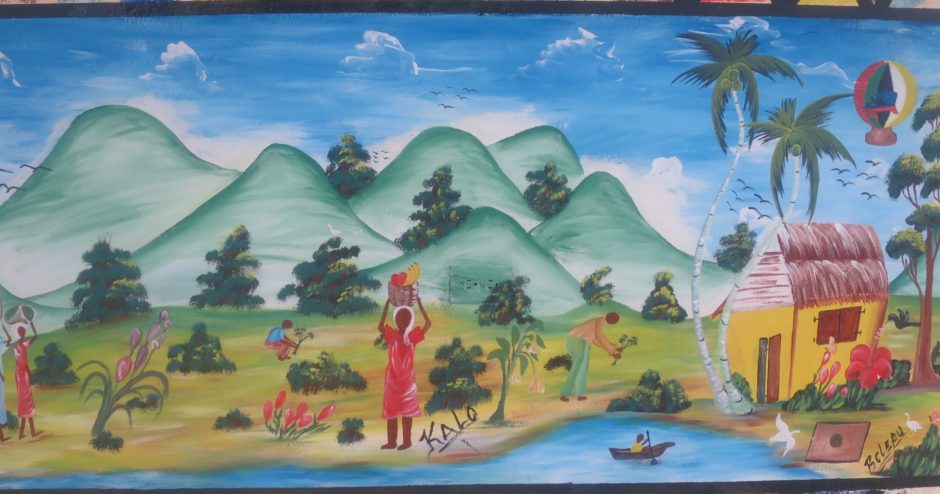Wednesday March 3, 2010
As always, I return from Haiti with mixed emotions. Anxious to be home, sad to be leaving. Already looking forward to planning my next trip.
As I try to review for myself the trip as a whole, I’d like to share my thoughts and impressions with you. The first few days were spent in Port-au-Prince – taking in the level of destruction, and the resilience of the Haitian people. I returned there on my way home as well. Little by little the streets are being cleared of rubble, and the city has returned to normal function. Traffic clogs the street, vendors sell everything from clothes to food to toothpaste and art work all along the roadway. People leave the tent camps during the day, searching for work or food or water, and return at night to sleep. Few people sleep inside a building, as the aftershocks continue. Although various aid organizations are trying to plan for the future, and port-a-potties are starting to be seen in various camps around the city, most individuals seem to be living day-to-day, without a real plan about how or when they will move on. Aid still fails to reach many in an organized way. And outside the city, in areas like Leogane that were hit even harder than PAP, it is even slower. Sanitation and waste disposal remain a huge public health concern. I made several connections for possible future work outside of PAP, but the brevity of the trip made substantial planning unrealistic.
In the countryside, especially in Duchity, I continued to hear stories of people that had returned. Young people especially, are struggling with issues of survival and survivor guilt. Not wanting to be a burden on their families, who struggled to pay school fees that are now lost down the drain, yet not having a way to help bring in support. In meetings and personal conversations, I encouraged them to be creative in thinking of how they can find support, and they encouraged me to advocate for them with the outside world – for scholarships and further learning opportunities. I have already had several responses from people on this list and elsewhere of wanting to come teach or help.
I firmly believe the future of Haiti lies in decentralization – of education, governance, production both manufacturing and agricultural. I believe YOUTHAITI can have a role in this by providing work opportunities and teaching agricultural techniques to help improve productivity. Moving from looking strictly at sanitation as a public health issue, to comprehensive programs of health and agriculture training. We have begun this work in earnest in Duchity. There are now 5 functioning toilets and 3 gardens. Our Agronomist, Jean Samuel Alteus, has begun a training program with representatives of the 3 communities we work in, which will be duplicated in other communities as we establish relationships and plan projects. As our resources increase, we will be able to reach more people in more communities.
Your continued support is crucial. Haiti’s natural disaster may be its saving moment. As people focus their attention on its needs, the opportunity for new models of behavior and communities arise. Rescue and clean up from the quake are proceeding. Now is the time to focus on rebuilding. Alteus and our OJPDD Coordinator, Franci Polyte, attended a coalition meeting to Rebuild Haiti. They were the only representatives from the Departments of Grande’Anse and South. They will continue to represent us and the rural communities of these areas, where some of the most fertile soils in the country still exist and the opportunity for agricultural development is perhaps greatest. By combining ecological sanitation solutions with agricultural development, the impact on public health is multiplied.
